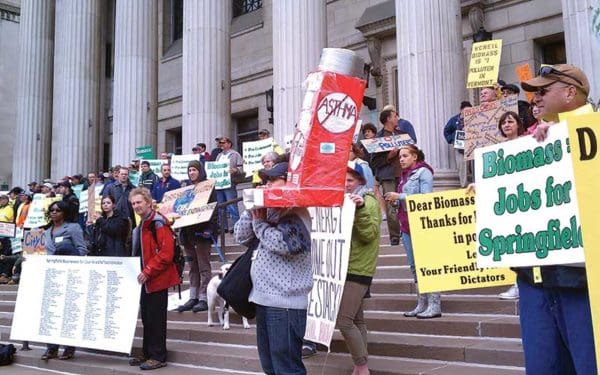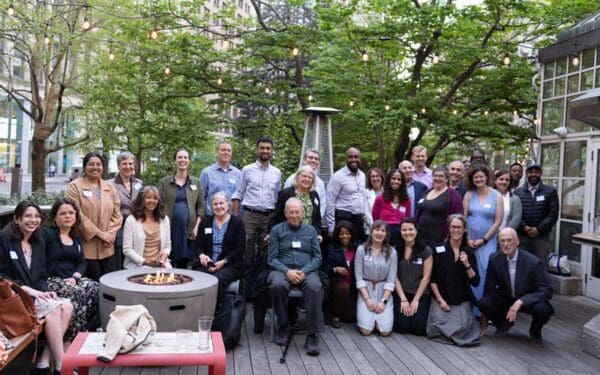
Being an environmentalist means standing against racial injustice in our activism every day. Photo: pcruciatti-via-Shutterstock
Where we live affects how much pollution we experience each day. It affects how long our commute is, how hot our neighborhood gets in the summer, whether we can afford winter heating bills, how much or how little open space we have around us, and whether we have access to healthy homes, nourishing food, and quality schools.
Our zip code also influences our health. Environmental factors such as air pollution impact the severity of COVID-19 and explain racial differences in COVID-19 mortality rates.
Decades of racist policies like redlining, the placement of industrialized facilities like power plants and exhaust-filled highways, or lack of good public transit all add up to environmental racism.
One example of environmental racism at work is our shameful “tradition” of installing energy infrastructure – fossil fuel plants, compressor stations, and more – in Black and Brown communities, low-income neighborhoods, and areas where people have limited political power to fight back.
These communities, referred to as “Environmental Justice populations,” have been forced to bear the brunt of pollution, toxic waste, and the general hazards that come from having these facilities as neighbors. And Massachusetts is no different.
People of color in Massachusetts have a 70% chance of living in one of the most contaminated communities in the state. 70%!
Over the last 12 years, Massachusetts regulators have approved six new fossil fuel power plants – five in or near areas already overburdened by industrial pollution. Those communities never had the power to stop them – and that was by design.
These communities should not be forced to be the sacrifice zones so that other neighborhoods can reap the benefits of an industrialized society. Being an environmentalist means standing against this injustice in our activism every day.
A bill before the MA legislature is trying to change this power imbalance. The Siting Reform Bill (H.3336/S.2135) would give communities a seat at that table and a greater say in how nearby energy facilities will affect their health. The bill will also make it easier for communities to take advantage of the benefits of clean energy – as clean energy facilities that would benefit the health and livelihood of the community would move forward more easily. Dirty, dangerous fossil fuels would be left behind.
We should be able to take it for granted that our energy infrastructure should not harm our health – but not all of us enjoy that privilege today.
Our race, ethnicity, income, or immigration status shouldn’t matter when it comes to having a say in the facilities that end up in our backyards. They shouldn’t matter when it comes to what’s in the air we breathe or in the water and ground beneath us. We all deserve the chance to shape our futures, to benefit our communities instead of harming them.
Now is our chance to fix this broken process, to shed this shameful American tradition of overburdening already vulnerable communities.
If you live in Massachusetts, you can show your support for the Siting Reform Bill. Let legislators know that you want them to work to pass this bill during this legislative session.
If you don’t live in Massachusetts, call your state reps and senators anyway and ask them what they’re doing to work for environmental justice in your state.



